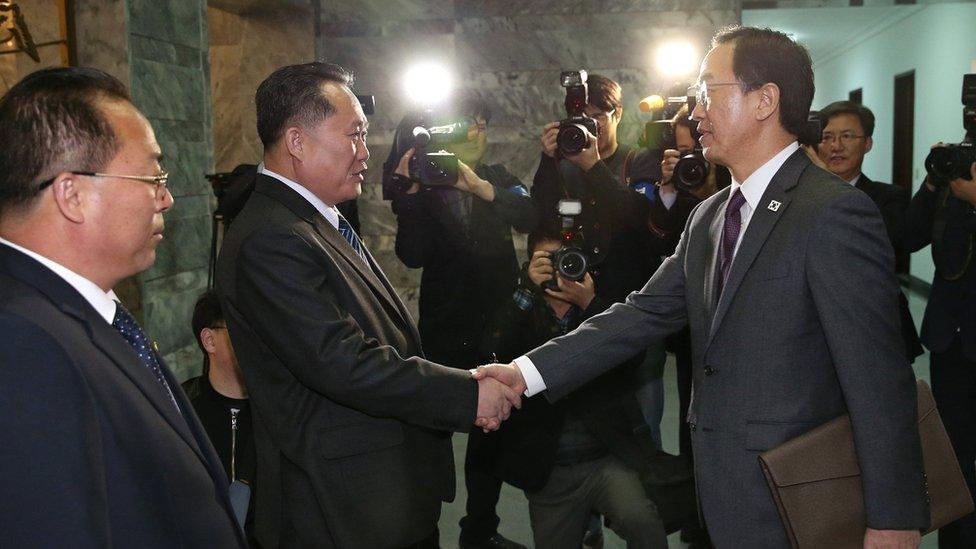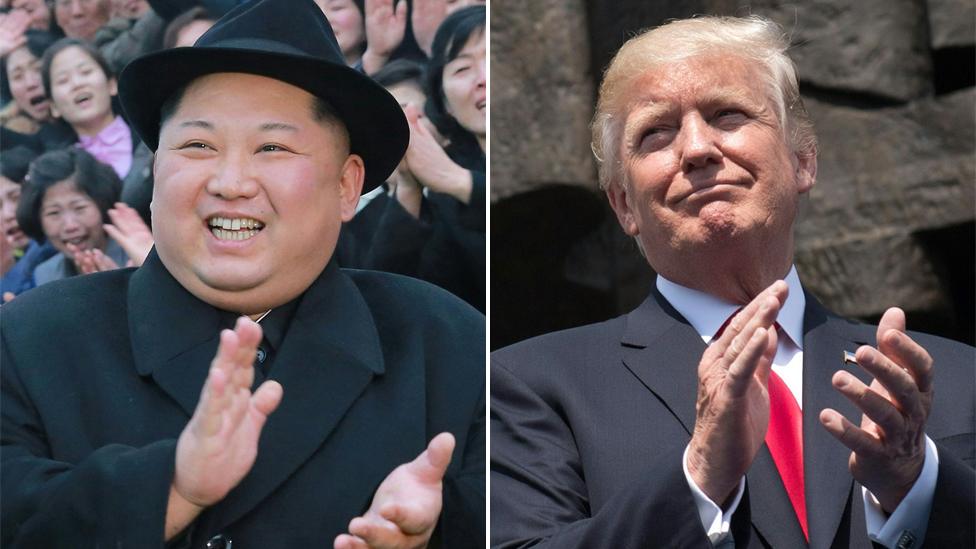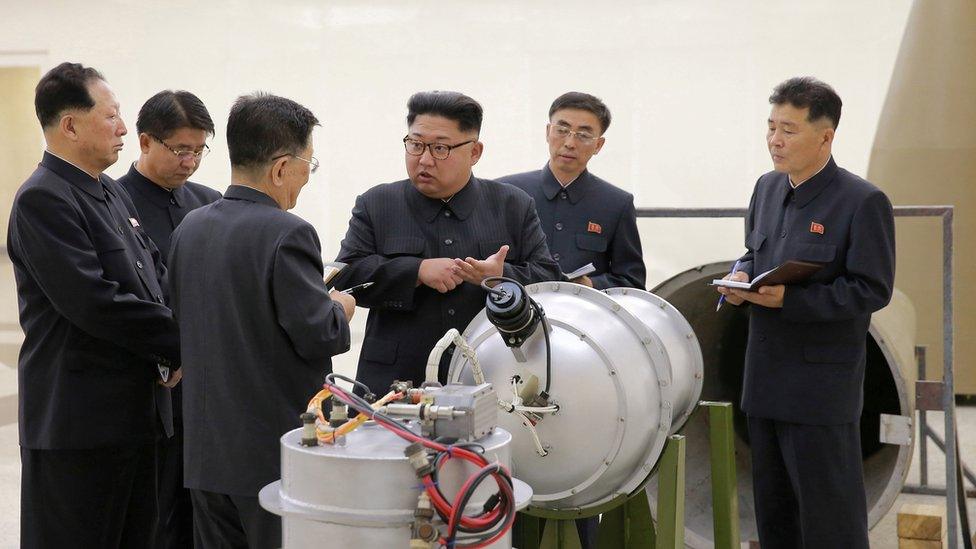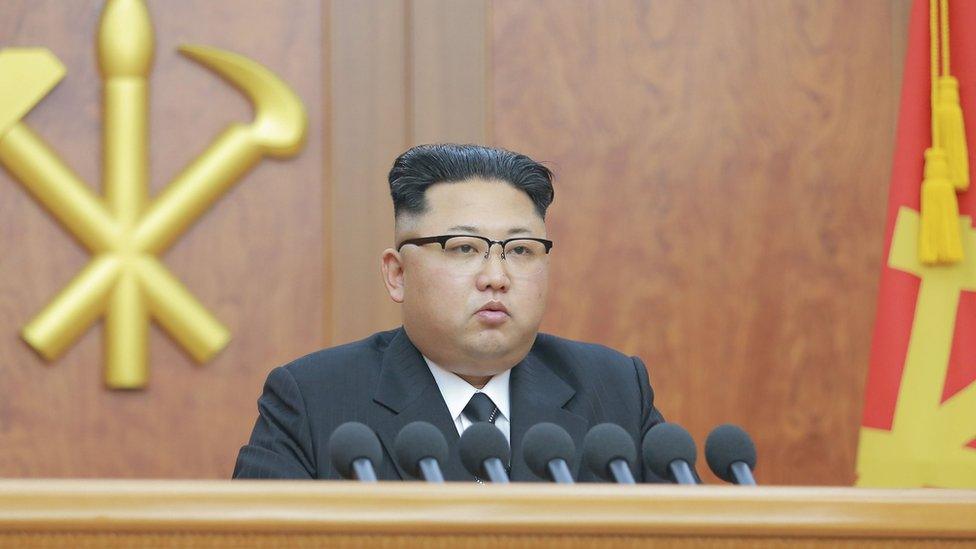North and South Korea set date for leaders' summit
- Published

Officials agreed on Wednesday that talks would be held between North and South Korea
The leaders of North and South Korea will hold their first summit in more than a decade on 27 April.
Talks between the North's Kim Jong-un and South Korean President Moon-Jae-in would be held in the border village of Panmunjom, a joint statement said.
The date was announced after officials from the two sides met to prepare for the summit.
The announcement comes a day after news emerged of discussions between Mr Kim and Chinese President Xi Jinping.
At the meeting in Beijing, the North Korean leader repeated his offer to denuclearise the Korean peninsula.
Mr Kim recently said that he wanted to meet US President Donald Trump. In what was considered a major foreign policy decision, Mr Trump accepted the offer and they could meet as soon as May.
But the US ambassador to China has told the BBC that he does not trust Mr Kim's offer to denuclearise.
The North and South Korean delegates said the inter-Korean summit would take place at the South Korean Peace House in the so-called "truce village" of Panmunjom.
At the press conference announcing the summit, North Korea's chief delegate Ri Son-gwon said: "Over the past 80 days or so, many events that were unprecedented in inter-Korean relations took place."
It will only be the third time leaders of the two countries have met, since an armistice was signed to conclude the Korean War in 1953.
Kim 'can't be trusted'
The last summit took place in 2007, external between the former leader of North Korea Kim Jong-il and the ex-South Korean President Roh Moo-hyun in the North Korean capital, Pyongyang.
The two states' only other summit was held in Pyongyang in 2000.
Speaking to the BBC, US Ambassador to China Terry Branstad said he did not trust what Mr Kim has said about denuclearisation.
He said "the history is that they couldn't be trusted" and that North Korea had in the past "reneged" on pledges over its weapons programme. He added that if any agreement was reached with Pyongyang, detailed checks would be required to ensure that nuclear weapons had actually been eliminated.
On the subject of Trump-Kim talks, the ambassador said "obviously a lot has to happen to put this together".
Diplomatic flurry
On Wednesday, Mr Trump welcomed news of progress following the talks between the Chinese and North Korean leaders in Beijing.
He said however that sanctions on North Korea would continue.
Allow X content?
This article contains content provided by X. We ask for your permission before anything is loaded, as they may be using cookies and other technologies. You may want to read X’s cookie policy, external and privacy policy, external before accepting. To view this content choose ‘accept and continue’.
On Thursday, China's foreign ministry spokesman Lu Kang welcomed the talks between the two Koreas, adding: "We hope the momentum of dialogue can continue and that the peaceful situation can last."
The announcement of a date for talks between North and South Korea is the latest move in a flurry of diplomatic activity since the start of the year, which saw the North attend the Winter Olympics in South Korea.
- Published28 March 2018

- Published21 April 2020

- Published11 September 2023
